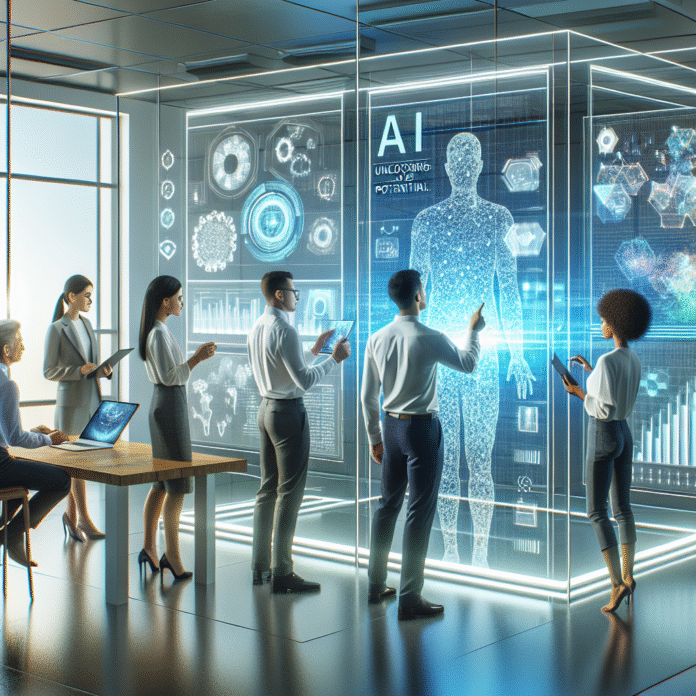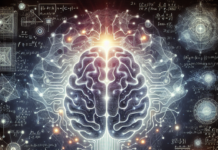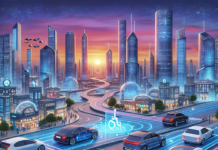Unlocking Potential: How AI is Transforming Industries
In today’s rapidly evolving landscape, artificial intelligence (AI) is revolutionizing how businesses operate across various sectors. From healthcare to finance, AI technologies are unlocking unprecedented potential, driving efficiency, innovation, and growth. This article delves into the transformative impact of AI on different industries and the future it promises.
1. Healthcare: Enhancing Patient Outcomes
AI is making significant strides in the healthcare sector, where it is streamlining processes and improving patient care. Machine learning algorithms analyze vast amounts of medical data, enabling healthcare providers to:
-
- Diagnose with Accuracy: AI tools can assist in diagnosing diseases by analyzing medical images and patient data faster and often more accurately than human practitioners.
-
- Personalize Treatment: AI systems can identify the most effective treatment plans tailored to individual patients based on genetic information and medical history.
-
- Predict Outcomes: Predictive analytics in patient care can foresee potential complications, allowing for timely interventions, thereby improving patient outcomes.
Case Study: IBM Watson Health
IBM Watson Health has exemplified the role of AI in healthcare by providing data-driven insights that optimize treatment plans and assist providers in making informed decisions. Hospitals using Watson have reported reduced costs and improved patient care standards.
2. Finance: Automating Processes and Enhancing Security
In the finance sector, AI is transforming everything from trading to risk management. Financial institutions are employing AI technologies to:
-
- Automate Tasks: Routine tasks such as data entry and transaction monitoring can be automated, freeing up human resources for more complex decision-making processes.
-
- Detect Fraud: Machine learning algorithms analyze transaction patterns to identify anomalies, significantly enhancing fraud detection and prevention efforts.
-
- Enhance Customer Experiences: Chatbots and virtual assistants powered by AI provide real-time customer support, facilitating smoother interactions with financial services.
Case Study: JP Morgan’s COiN
JP Morgan’s Contract Intelligence (COiN) program uses AI to analyze legal documents and streamline the review process, reducing time and improving accuracy.
3. Manufacturing: Streamlining Production and Supply Chains
The manufacturing sector is experiencing a significant AI-driven transformation. Key applications include:
-
- Predictive Maintenance: AI tools analyze equipment data to predict failures and schedule maintenance, minimizing downtime and saving costs.
-
- Quality Control: Computer vision algorithms can detect defects in products during production, ensuring high-quality standards.
-
- Supply Chain Optimization: AI systems forecast demand and optimize inventory management, enhancing efficiency throughout the supply chain.
Case Study: Siemens
Siemens has embraced AI to optimize its manufacturing processes, identifying inefficiencies and improving production rates through predictive analytics and automation.
4. Retail: Personalizing Experiences and Streamlining Operations
In the retail sector, AI is enhancing customer experiences and operational efficiency. Key transformations include:
-
- Personalized Recommendations: AI algorithms analyze shopping behaviors to provide personalized product recommendations, boosting sales and customer loyalty.
-
- Inventory Management: Predictive analytics help retailers manage stock levels accurately, reducing waste and ensuring product availability.
-
- Virtual Try-Ons: Augmented reality (AR) combined with AI allows customers to virtually try on clothing or accessories, enhancing the shopping experience.
Case Study: Amazon
Amazon leverages AI to personalize shopping experiences, streamline logistics, and manage vast inventory systems, drastically altering the landscape of e-commerce.
5. Transportation: Revolutionizing Mobility
AI’s influence is also evident in the transportation sector, shaping the future of mobility by:
-
- Autonomous Vehicles: Companies like Tesla and Waymo are pioneering self-driving technology, utilizing AI to improve road safety and reduce traffic congestion.
-
- Optimizing Routes: AI systems analyze traffic data to provide real-time route optimizations for logistics and public transport, saving time and resources.
Case Study: Uber
Uber employs AI algorithms to match riders with drivers efficiently, optimizing routes and reducing wait times for its users, thus enhancing the overall transport experience.
Conclusion: The Future of AI in Industries
As AI continues to evolve, its potential for transformative impact across industries is boundless. Embracing AI technologies enables businesses to drive innovation, optimize processes, and ultimately enhance customer experiences. However, the ongoing integration of AI also raises ethical questions and challenges surrounding data privacy, job displacement, and accountability.
To harness AI’s full potential, industries must adopt a balanced approach, combining technological advancement with responsible practices. As we move forward into an AI-driven future, collaboration among tech developers, businesses, and regulatory bodies will be essential to unlock the immense possibilities that AI has to offer.
More related articles- Artificial Intelligence (AI) is no longer a futuristic concept — it is a transformative force reshaping the global economy and redefining the way industries operate.







